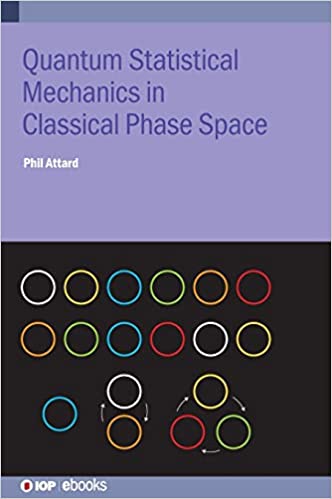
English | 2021 | ISBN: 0750340533 , 978-0-7503-4055-7 | 348 pages | True PDF EPUB MOBI | 43.95 MB
Quantum and classical results are often presented as being dependent upon separate postulates as if the two are distinct and unrelated, and there is little attempt to show how the quantum implies the classical. The transformation to classical phase space gives researchers access to a range of algorithms derived from classical statistical mechanics that promise results on much more favourable numerical terms. Quantum Statistical Mechanics in Classical Phase Space offers not just a new computational approach to condensed matter systems, but also a unique conceptual framework for understanding the quantum world and collective molecular behaviour. A formally exact transformation, this revolutionary approach goes beyond the quantum perturbation of classical condensed matter to applications that lie deep in the quantum regime. It offers scalable computational algorithms and tractable approximations tailored to specific systems. Concrete examples serve to validate the general approach and demonstrate new insights. For example, the computer simulations and analysis of the λ-transition in liquid helium provide a new molecular-level explanation of Bose-Einstein condensation and a quantitative theory for superfluid flow. The intriguing classical phase space formulation in this book offers students and researchers a range of new computational algorithms and analytic approaches. It offers not just an efficient computational approach to quantum condensed matter systems, but also an exciting perspective on how the classical world that we observe emerges from the quantum mechanics that govern the behaviour of atoms and molecules. The applications, examples, and physical insights foreshadow new discoveries in quantum condensed matter systems.
Key features
* A computationally efficient approach to quantum condensed-matter many-particle systems based on a formally exact transformation of quantum statistical mechanics to classical phase space.
* Shows how the observed classical world emerges from the underlying quantum mechanics of atoms and molecules.
* Describes successive quantum corrections to classical statistical mechanics.
* Derives a number of expansions that account for the non-commutativity of quantum position and momentum operators when transformed to classical phase space.
* Tests various computer simulation algorithms against benchmark results for model condensed matter systems.
Buy Premium From My Links To Get Resumable Support,Max Speed & Support Me



